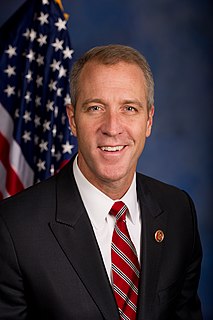A Quote by Milton Friedman
The big issue is whether the United States will succeed in its venture of reshaping the Middle East. It is not clear to me that using military force is the way to do it. We should not have gone into Iraq. But we have.
Related Quotes
I believe that the Iraqis have an opportunity now, without Saddam Hussein there, to build the first multiconfessional Arab democracy in the Middle East. And that will make for a different kind of Middle East. And these things take time. History has a long arc, not a short one. And there are going to be ups and downs, and it is going to take patience by the United States and by Iraq's neighbors to help the Iraqis to do that. But if they succeed, it'll transform the Middle East, and that's worth doing.
I think that the big issue people haven't talked about for the Iranians - and, obviously, for the Americans - is Iraq. Iran can be a tremendous help to the United States in Iraq. I don't think the Iranians have a particular preference for John McCain or Barack Obam - for them, it's the candidate who is willing to recognize that they are an important country that can have a serious effect on Middle East peace.
The latest developments in Iraq are deeply troubling, but as the United States considers military and diplomatic responses to the actions of the Islamic State in Iraq and Syria (ISIS) action, we should be clear that U.S. troops on the ground cannot go a million miles near a sectarian civil war-it's simply not an option.
I don't believe in the theory that the United States is reducing its presence in the Middle East. Quite the contrary, in the Gulf, we see an increase in American military presence, as well as an increase in American investments. The argument is more accurate when one says America is focusing more attention to the Far East. But I don't believe it comes at the expense of the Middle East.
I'll tell you what they're all going to face, whichever one of them becomes president on January 21st of 2009. They will face a military force - a United States military force that cannot sustain - continually sustain 140,000 people deployed in Iraq and the 20-odd or 25,000 people we have deployed in Afghanistan and our other deployments.
The United States is looking at a way to launch peace with a disarmed Iraq. And so we are studying the declaration that Iraq submitted. Other members of the security council are studying the declaration, as is Unmovic and IAEA, and I would not make a judgment as to whether or not the declaration will be found deficient and whether or not that might lead to a material breach and whether or not, if it did, that would lead to action on the part of the United Nations.
It doesn't matter what a majority of Americans say. George W.Bush is going to do what he thinks he must do. And history may be tough on him in the next ten years but I guess he rationalizes that in fifty or 100 years they'll bless us because there will be - maybe not in his lifetime, but someday-a democratic Iraq emulating the United States in its liberalism, in its fair-mindedness, and that democracy will spread to Iran and Syria, and that whole part of the Middle East will be happy, and terrorism will be gone, and the Israelis will be flourishing, and the oil will flow. That's his vision.
I think the President's decision to withdraw the United States, to keep a campaign promise in Iraq, without leaving a stay-behind force was a mistake, and I hear that from veterans in Wyoming and from parents who lost children fighting in Iraq. We're seeing it, though, around the world. When we, the United States leads a vacuum anywhere, that emboldens others to go in, when there is no sense of deterrence by the United States that lets bad actors move and fill the void.
The United States found dozens of billions of dollars for military action in Iraq, so it should certainly be able to find a few billions of dollars to get rid of weapons of mass destruction. I'll assume that since the most powerful nation - the United States - has promised to pay for much of this, then its word will be kept. If it isn't, I don't think we can have a true partnership.




































